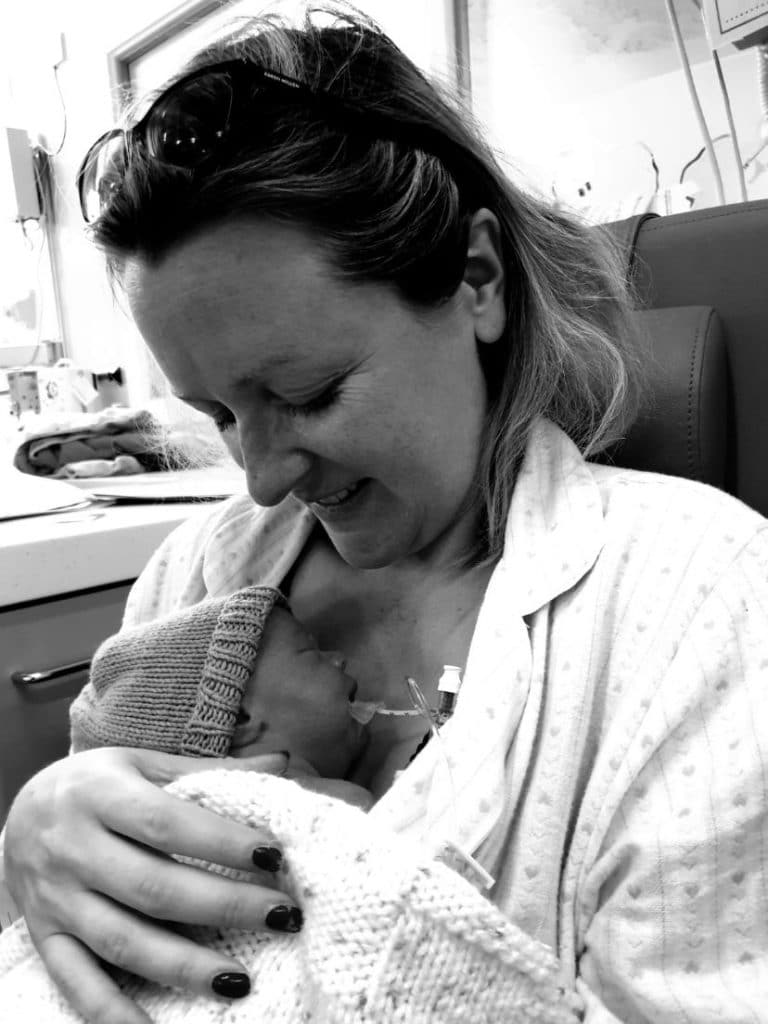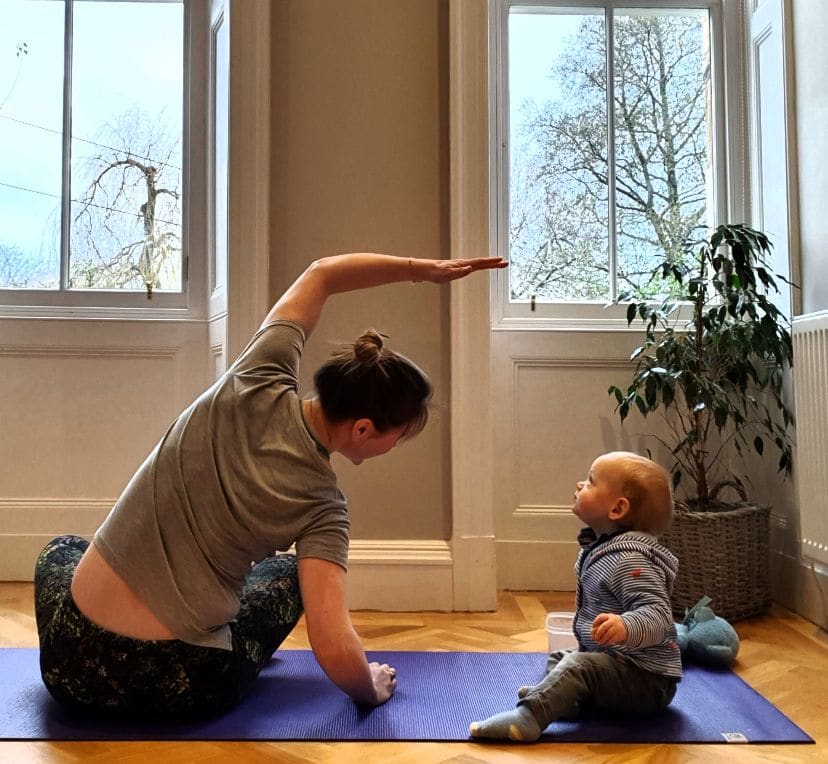I am so thrilled to bring you a guest blog, and this time from the lovely Jen Smith (@every_mum_needs_a_cheerleader)! Jen is a Mum of three children and she works as a Postnatal Recovery Specialist. Jen and I connected last month after I had begun discussing Postpartum recovering in NICU via my Instagram account, and I just loved hearing about how exercise had played such a big part in her PTSD recovery following her son’s NICU stay. I am a big advocate in the benefits of exercise for mental health and felt it was an experience that was worth sharing with you all.
L’s early arrival
I gave birth to my son prematurely in October 2019. It was – bluntly – awful. Premature labour, poor care, not being listened to by staff, cord prolapse, a physically and emotionally painful crash emergency section. This was all followed by a NICU stay and further hospital admissions full of terminology, illnesses and procedures I had never heard of before.
The NICU Aftermath
After we got home, I went into hibernation mode. Christmas was coming up but I don’t have many memories of that time, and in hindsight I can recognise now that I was in ‘freeze mode’, unable to really feel any strong emotions, good or bad.
After Christmas, I started to come back down the other side of the peak, feeling emotions I’d been bottling up for months, which scared me a bit. I went for a debrief with my consultant who recognised immediately that I needed help. Within a month I’d been diagnosed with PTSD, was on medication, and was seeing a mixture of psychiatrists and psychologists every week, all during lockdown and with my three kids under 5 at home. It was intense & scary; I was worried I’d never be myself again, to the point where my psychologist asked if I was starting to feel more like myself, and I had no idea what that would feel like.
Post Traumatic Stress Disorder
The nature of PTSD means that your brain doesn’t switch off, so I was constantly on high alert, reliving traumatic events, my mind never fully present. It was upsetting to realise how much of an impact it was having on my day-to-day ability to just be present with my kids, let alone navigate what the pandemic was throwing at us. I was desperate to get better and willing to try anything, from resting more than usual, drinking more water than normal, being more focused on my nutrition, anything I could do.
What exercise could I manage?
One thing that I was able to control, and which became a core part of my recovery, was being able to exercise. Whether it was a 20 minute low-impact Body Coach workout, a quick walk or jog around the park, some yoga, it was the one thing that gave me the energy to get up in the morning, to keep parenting, to keep working at the psychological support I was receiving. It gave me space to clear my head and switch off those constant, exhausting thoughts; an endorphin boost to feel more positive. Rather than thinking of it as “postnatal fitness” (and some of the unwelcome links to losing the baby weight, or snapping back), this was all about postnatal recovery – allowing my body to heal properly from the inside out.
Managing to squeeze in a little bit of exercise became a really important part of my self-care, giving me space to reconnect with and trust my body – I’d paid it zero attention since giving birth, and it was creaking *loudly*. All the aches, niggles and worries I’d been ignoring had been having an impact on my mental health without me realising – it was like they were constant physical reminders of the stress we’d gone through as a family.
How did the exercise benefit me?
I noticed that my bottled up concerns about the ongoing pelvic pain I was experiencing was contributing to my body still thinking it was in survival mode. Once I started to take action to address those niggles, I felt more confident in my body and felt stronger than I had before. It wasn’t so much about the cure – I still have pelvic pain some days, and it’s a work in progress – it was more the fact that I was consciously taking time to help heal my body, recognising that I deserved to take that time for myself. After months of blaming my body for my son’s premature birth, I managed to get back a little bit of pride in my body and what it had achieved.
Following my body’s lead
Some days I needed to listen to my body and rest, and it took a while for me to recognise when a walk was better than a jog. But all of this gave me permission to listen to my own instincts more often, focusing on what I could do rather than what I couldn’t do, which I had struggled to do after our NICU stay as I couldn’t make any decisions there.
The endless benefits of Yoga
Apart from the physical benefits, yoga also played an important part in helping me come to terms with my illness. It helped me learn to relax again: I was physically tense all the time and unable to let go even when lying in bed, and it felt like both my brain and my body were winding each other up – the more I worried, the more tense my body became and vice versa. It allowed me to breathe, having held my breath for so long during our NICU stay and afterwards.
Most importantly, yoga helped me to find acceptance for what we’d been through. It allowed me to take a step back and see my brain as just another part of my body that needed to recover, in the same way that I needed to recover physically from the birth.
Physical & Mental Trauma run side by side
Just because I can’t see the scars doesn’t mean they aren’t there. And rather than being frustrated with myself that I wasn’t stronger, because I couldn’t put the experience behind me, or didn’t deal with it better, I can accept that my brain was dealing with just as much trauma as my abdomen, and both are healing.
If I have a bad day, I remind myself that I don’t blame myself when my pelvic pain flares up, so I don’t need to treat my brain any more harshly than I would do any other part of my body. It doesn’t make me a better or worse person, they’re just different parts of me healing in different ways. My PTSD doesn’t define me as a person, just the way my short legs, my blue eyes and what I studied at university also don’t define me as a person.
Mother’s Self-Care is vital
The thing I’ve learnt is that looking after ourselves is just as important as looking after our little ones, and after a NICU stay this is even more important for all parents. I wish we lived in a world where we had proper postnatal support for everyone, but unfortunately at the minute that’s not the reality for many, especially during a pandemic. Even without COVID, it’s even harder after a NICU stay as support tends to be even more focused on your little one.
However, that doesn’t mean you shouldn’t ask for help, whether it’s your physical or emotional recovery. You deserve to look after yourself, even if that’s as basic as a 15 minute walk around the park in the fresh air, doing your pelvic floor exercises or drinking a glass of water to nourish yourself. If you’re going to start any new exercise, don’t compare yourself to what you could do before, because your mind and your body have been through so much and is healing in ways you can’t see – take it one day at a time, start small, get support from someone who’s trained in postnatal recovery, and listen to what feels right for you.



Jen Smith @every_mum_needs_a_cheerleader

